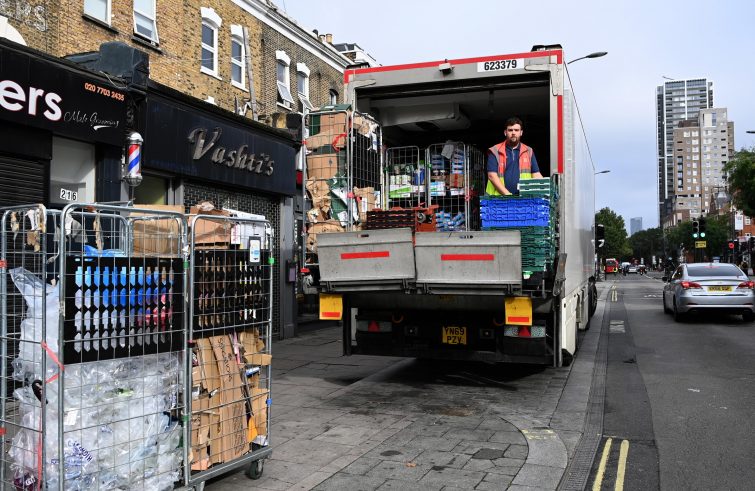
The British, Scots and Welsh are bound to face a serious dilemma over traditional Christmas dishes. Will boiled broccoli, a staple of British Christmas dinner, be available when there is a shortage of European labourers to harvest it and production is likely to be transferred to Spain in the meantime? Even roast turkey, at the heart of the traditional family Christmas dinner, is pending this year. “Poland and France keep turkeys on Britain’s Christmas dinner menu”, headlined the Financial Times, explaining that British farmers reared at least 1m fewer birds, a fifth of the entire production of turkeys, since – low-paid- labour from eastern Europe was not available.
Pork products and sausages at stake. “We normally supply all the turkeys ourselves for Christmas, but this year we will have to import them from Poland and France,” said turkey farmer Paul Kelly. The government responded by extending temporary visas to 5,500 poultry workers, but according to British Poultry Council Chief Executive Richard Griffiths, there is not enough time for European workers to apply for visas. “That is, if they are interested in coming to Europe,” he added. Pigs in blankets, small sausages wrapped in bacon, and “gammon“- cured pork – are also traditional Christmas favourites, but slaughterhouses have been short-staffed by 15% and around 120,000 pigs could be needlessly killed if their meat is not consumed. Six hundred have already been slaughtered amidst protests from farmers.
Petrol shortage, empty shelves. Are the Brits starting to doubt the benefits of Brexit as they stand in line for limited petrol, empty supermarket shelves and a big question mark over next Christmas’ menu?
Not to mention the misunderstandings at the North Ireland border and the hassles of travelling to Europe,
where British travellers without a Green Pass have to prove that they are vaccinated and that the vaccine is among those recognised by the EU.
Quite badly, in fact “very badly”. “Only four per cent of Britons think Brexit has gone ‘very well’”, titled the Independent in an op-ed that quotes data from a YouGov poll which found that for 53% of respondents leaving the EU turned out a disaster, with 21% convinced that that the post-Brexit period was going “quite badly” and 32% “very badly”. The remaining respondents said they are yet unsure about its impact on their lives.
A conspiracy of silence. “Unfortunately, nothing has changed since the referendum of June 23, 2016, when 52 per cent of Britons voted to leave the EU”, remarked Professor Catherine Gegout, EU Foreign Policy professor at the University of Nottingham. “We are seeing what could be described as a conspiracy of silence on Brexit downsides.
Not even a liberal newspaper like the Guardian has the courage to spell out that rejoining Europe would be to Britain’s own benefit
nor is this battle being fought by the Labour Party. Not to mention the many tabloids close to the Conservative Party that continue celebrating Britain’s regained national sovereignty.”
From bad to worse? The expert also said that her first-year students know nothing about the European Union, whereas “five years ago, before the referendum, they had a basic knowledge of the European institutions”. Why? “Middle and high school teachers, who were already struggling to find time for all the other subjects, have decided to ignore Europe. We just have to hope that the coming winter season, which portends some serious challenges, will cause more people to realise that leaving the EU was a mistake. If, as it seems, Prime Minister Boris Johnson triggers Article 16 of the UK-EU ‘Protocol on Ireland/Northern Ireland’, allowing him to backtrack on the border initiated between Northern Ireland and the UK, the EU will be forced to introduce trade tariffs on British goods, potentially hindering Britain’s exports to the European market, which account for 50% of all UK exports. The adverse effects of Brexit on the lives of Britons are only likely to intensify.”











